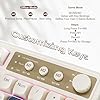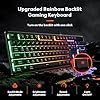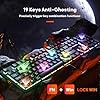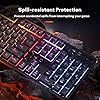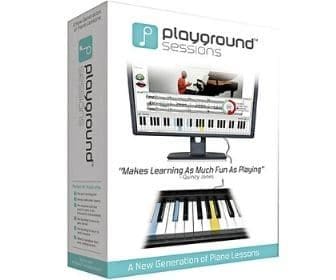Table of Contents
Introduction to Learning Piano through Technology
In the modern era, technology plays a crucial role in facilitating new learning methods across various fields, including music. The advent of digital tools has revolutionized the way individuals engage with musical instruments, particularly the piano. Traditionally considered an instrument that requires years of methodical practice and in-person instruction, the piano has now become more accessible than ever through technological advancements.
Flowkey
Flowkey is an intuitive app designed for both beginners and advanced players looking to enhance their piano skills. This app offers a wide range of songs across different genres and levels of difficulty. One of its standout features is the real-time feedback system, which listens to your playing via microphone or MIDI connection and shows you instantly which notes were played correctly or incorrectly. Moreover, Flowkey provides detailed video tutorials that guide users on the proper finger techniques and playing styles. This app doesn’t only focus on playing songs; it also offers essential lessons on music theory, reading sheet music, and improvisation.
How to Read Music: Fundamentals of Music Notation Made Easy
21% OffPiano: Learn The Piano in 5 Easy Steps: A Self-Guided Piano Course for Beginners (with Online Video Instruction - Piano Learning Books for Beginning Piano Players)
17% OffBeginner Piano Book for Kids | Piano Lessons | Learn to Play Your First Songs | Intro to Piano
$10.97 (as of November 22, 2025 23:16 GMT -08:00 - More infoProduct prices and availability are accurate as of the date/time indicated and are subject to change. Any price and availability information displayed on [relevant Amazon Site(s), as applicable] at the time of purchase will apply to the purchase of this product.)How to Read Bass Clef on the Piano | Left Hand Piano Reading Workbook for Beginners and Music Students | Bass Staff Note Reading Guide and Piano Instruction Book for Sightreading Practice
Simply Piano by JoyTunes
Simply Piano by JoyTunes is designed to serve as a personal piano tutor, from the very basics to pro levels. It’s known for its user-friendly interface that caters to all ages, making learning piano feel like a game. Simply Piano uses the microphone to listen to your piano or keyboard. It provides instant feedback and identifies areas where improvement is needed. The curriculum is organized into courses that cover a variety of musical genres and include essential skills like reading sheet music, chord progression, and playing techniques. The app also adds new songs weekly, keeping the learning process engaging and fun.
Yousician
Yousician offers a comprehensive approach to learning piano for music lovers. This app uses the “listen and play” technology to provide real-time feedback on precision and timing. Beyond its core focus on piano, Yousician also offers lessons for other instruments like guitar, ukulele, bass, and singing, making it versatile for multi-instrumentalists. The app includes thousands of songs, exercises, and teacher-crafted lessons. Whether it’s pop, classical, or jazz, Yousician tailors its lessons according to the user’s musical preferences and skill level and tracks progress through user-friendly dashboards.
Piano Academy
Piano Academy is targeted for beginners and intermediate players, offering interactive lessons that teach reading sheet music, chords, and important musical notation. The app listens to what you play on a digital keyboard or an acoustic piano and provides feedback on timing and accuracy. It features a virtual keyboard, but using a real piano or keyboard is beneficial for optimal learning experience. The tutorials are very engaging, including videos and games designed to nail down basics and challenge the learner progressively.
SkooVE
SkooVE focuses on providing personalized learning experiences with lessons tailored to your skill level and musical preferences. The app offers a variety of courses and songs under licensed partnerships with music publishers, allowing you to learn popular tracks. You get feedback on your playing and can also choose the pace and difficulty level of each lesson to suit your learning style. Skoove’s Beginner Courses do an excellent job of introducing the fundamentals of piano up to advanced levels. It’s a powerful tool for auditory and visual learners due to its interactive interface and step-by-step guide.
Logitech MK270 Wireless Keyboard and Mouse Combo for Windows, 2.4 GHz, 8 Multimedia Keys, PC, Laptop, Wireless Keyboard Compact Mouse Combo - Black
33% OffAULA S99 Gaming Keyboard, Wireless Computer Keyboards, Tri-Mode Bluetooth/2.4GHz/USB-C Custom Creamy Keyboard with Number Pad, RGB Backlit Media Knob Cute Programmable Keyboard for PC Gamer - Green
15% OffRedragon K521 Upgrade Rainbow LED Gaming Keyboard, 104 Keys Wired Mechanical Feeling Keyboard with Multimedia Keys, One-Touch Backlit, Anti-Ghosting, Compatible with PC, Mac, PS4/5, Xbox
15% OffWireless Keyboard and Mouse Combo, Full Size Silent Ergonomic Keyboard and Mouse, Long Battery Life, Optical Mouse, 2.4G Lag-Free Cordless Mice Keyboard for Computer, Mac, Laptop, PC, Windows
$25.99 (as of November 22, 2025 07:20 GMT -08:00 - More infoProduct prices and availability are accurate as of the date/time indicated and are subject to change. Any price and availability information displayed on [relevant Amazon Site(s), as applicable] at the time of purchase will apply to the purchase of this product.)Playground Sessions
Playground Sessions is co-founded by music legend Quincy Jones and features innovative technology that teaches music through the fun process of playing. It uses a bootcamp-style structure where you learn from interactive lessons designed by professional musicians. The app supports your practice by providing real-time feedback and scores your progress. All sessions are designed to feel like a game, incorporating elements of video gameplay to enhance learning and retention. This program champions the learning process by teaching a mixture of theory, techniques, and songs, with a sizeable library covering various genres.
Using Digital Keyboards for Effective Learning
The advancement in technology provides numerous tools to aid in learning the piano, with digital keyboards being a cornerstone due to their versatility and functionality. When selecting and using a digital keyboard for piano practice, several features should be considered to enhance learning effectiveness.
Weighted Keys: One of the essential features to look for is weighted keys. These keys mimic the resistance and sensitivity of a traditional acoustic piano, providing a more realistic playing experience which is crucial for developing proper finger technique and dynamics.
Touch Sensitivity: Touch sensitivity, or velocity sensitivity, allows the digital keyboard to respond to the force with which the keys are pressed, varying the loudness of the note played accordingly. This feature is critical for expressing nuances in music and for building dynamic control.
Range of Sounds and Voices: Modern digital keyboards offer a myriad of sounds and voices which can keep learning sessions engaging and explorative. Experimenting with different sounds such as strings, organs, and various piano tones can be particularly motivating for beginners, encouraging continued practice and exploration.
Built-in Learning Tools: Many digital keyboards today come with built-in tools meant to aid in learning. These may include light-up keys, integrated lessons, play-along tracks, and even connectivity with apps and software. These tools can help beginners understand music theory concepts, improve timing, and develop ear training skills.
Record and Playback Functions: The ability to record what you play and listen back is incredibly beneficial for learners. This allows students to critically listen to their performances, pinpoint mistakes, and monitor their progress. Playback features also enable learners to play along with themselves, which is a great way to practice duets when you’re learning solo.
MIDI Compatibility: MIDI (Musical Instrument Digital Interface) compatibility is another significant feature. This allows the keyboard to connect to computers and other MIDI-enabled devices. Using MIDI, students can access a broader range of educational software, increasing the resources available for learning music theory, composition, and more.
Portability and Ease of Use: Digital keyboards are usually more portable than traditional pianos. This means learners can easily set up their instrument in a variety of settings conducive to practicing. Moreover, these instruments are generally less intimidating for beginners to start with, featuring user-friendly interfaces and settings.
Choosing the right digital keyboard and utilizing all available features can profoundly influence the learning curve for beginners and intermediate players. Embracing the technological advancements in these instruments can lead to more efficient, enjoyable, and comprehensive piano studies.
How to Use Online Metronomes
Online metronomes are essential tools for piano students to maintain a consistent tempo and improve their rhythmic accuracy. To effectively use an online metronome, follow these steps:
Practicing regularly with a metronome will help reinforce a steady pace and improve your timing, which is crucial for playing piano effectively.
How to Use Online Tuners
For pianists, an online tuner might not be used directly on their instrument, but understanding tuning is beneficial for ear training and playing with other instruments. Here’s how to use online tuners:
While pianos require professional tuning, online tuners can be a great educational resource for understanding pitch and developing the ear, supporting better musical performances.
Recording Your Practice Sessions for Feedback
One of the most effective ways to improve your piano skills is to record your practice sessions. This technique allows you to objectively review your performance and receive constructive feedback. With the advancements in technology, various tools can be utilized to enhance this learning process.
Smartphones and tablets have become indispensable devices for recording practices. Apps like Pro Metronome or Tempo not only help in keeping time but also in recording audio and video. Ensure to place the device in a stable position to capture a clear view of your keyboard and hands. After recording, review the videos to assess your hand positioning, timing, and emotional expression.
Dedicated audio recorders such as the Zoom H1n offer higher sound quality compared to smartphones and can be extremely useful, especially if you’re focusing on sound clarity and dynamics. Reviewing high-quality audio recordings can help you identify nuances and subtleties in your performance that might be missed with lower-quality devices.
Software like Ableton Live, GarageBand, and Logic Pro are not only great for editing and producing music but also for recording practice sessions. These programs offer the added advantage of being able to overlay your playing with metronome tracks, other instruments, or pre-recorded music to get feedback on timing and rhythm. Using these tools, you can also visually analyze waveforms and pinpoint areas where dynamics or tempo fluctuate.
Platforms like YouTube or SoundCloud allow you to upload your recorded sessions and share them with a wider audience, including teachers and fellow musicians, who can provide valuable feedback. Additionally, communities like Reddit or specialized forums provide a niche audience that can offer targeted advice and critique.
Technological integration in digital pianos has grown significantly; models like the Yamaha Clavinova and The ONE Smart Piano can connect directly to smart devices and apps, recording your play in real-time. These pianos often come with built-in apps that analyze your playing, showing you where you hit the wrong note or where your timing is off.
Emerging VR technologies provide immersive learning experiences that can revolutionize practice sessions. Systems like VRtuos allow you to practice with a virtual piano and record the session within a simulated environment. This can be especially useful for performance practice, as it simulates a live audience or different settings, providing unique feedback on your ability to perform under various conditions.
By integrating these technology tools into your practice routine, you can gain deeper insights into your playing, track your progress over time, and continually enhance your piano skills.
Exploring Virtual Reality as a Piano Learning Tool
Virtual Reality (VR) technology has emerged as a groundbreaking tool for educational purposes, particularly in music education like piano learning. VR applications immerse users in a virtual environment that simulates the experience of playing a real piano, making learning both engaging and intuitive.
One of the most significant advantages of VR is its ability to simulate a 360-degree learning environment. This immersive setting enables learners to practice as if they are in a music studio, with the ability to interact with virtual instruments and an array of multimedia content that enhances the learning experience.
Furthermore, VR supports interactive learning. Students can receive immediate feedback on their performance, helping to quickly correct techniques and reinforce good habits. Advanced VR programs incorporate Artificial Intelligence (AI) to analyze user performance and provide tailored feedback, which accelerates the learning process.
Accessibility is another key benefit. VR can transform any space into a virtual classroom, eliminating the need for physical access to traditional piano classes which might not be available or affordable for everyone. Additionally, it allows students to practice and learn at their own pace without the pressure of real-time classes.
Several VR applications are already influencing how people learn to play the piano. Applications such as Piano VR and Virtual Piano offer lessons that range from beginner to advanced levels, complete with a variety of teaching styles and song libraries. These apps are designed to be user-friendly, catering to both children and adults.
Despite its benefits, VR technology in piano education does face challenges, such as the cost of VR headsets and the need for continual software updates and improvements. Nonetheless, as technology advances and becomes more accessible, VR could revolutionize not just piano learning but music education as a whole.
Conclusion
In conclusion, leveraging technology for learning piano can significantly enhance the educational experience. Tools such as online tutorials, interactive apps, and digital sheet music offer flexible, engaging, and personalized learning platforms. Additionally, the integration of AI tutors and virtual reality setups presents innovative approaches to overcoming traditional learning barriers and accelerating skill acquisition. Embracing these technological resources will not only make learning the piano more accessible but also more effective and enjoyable.
























